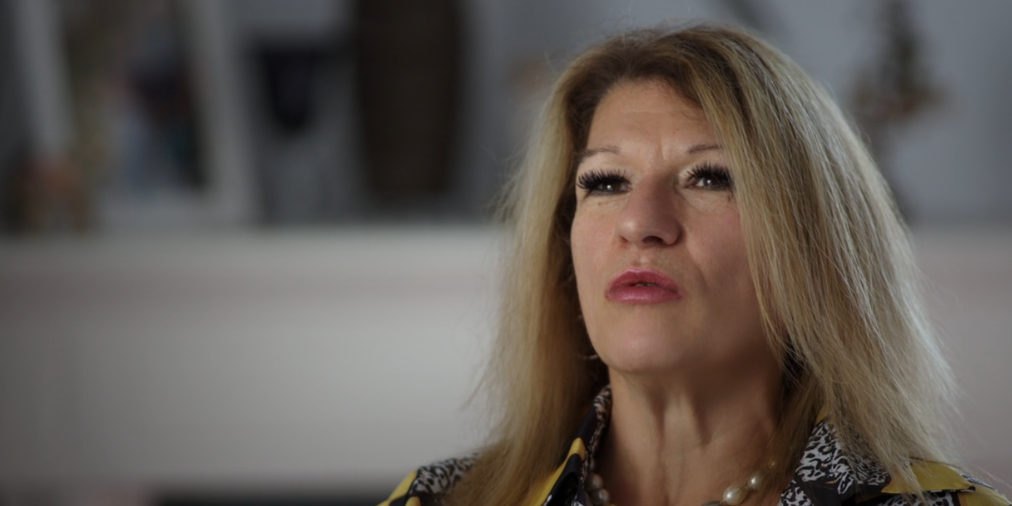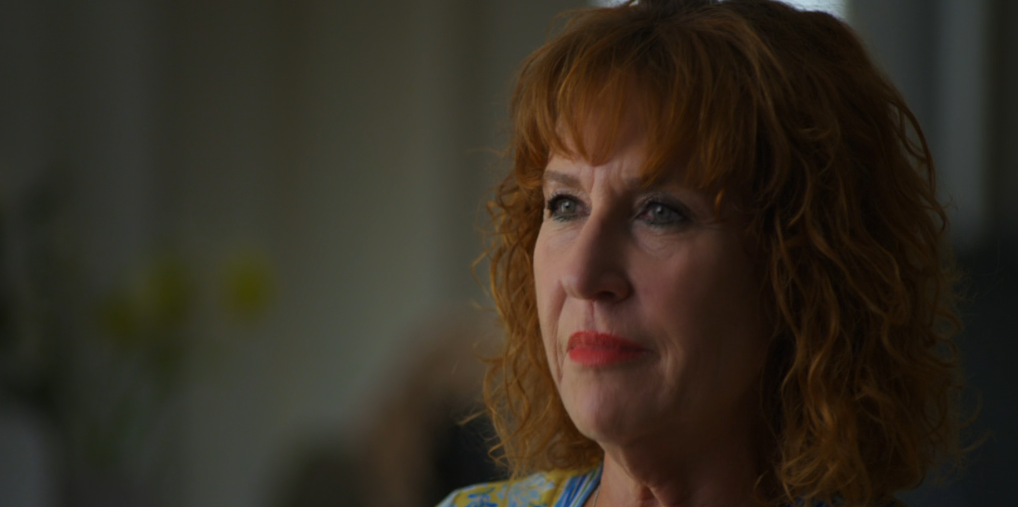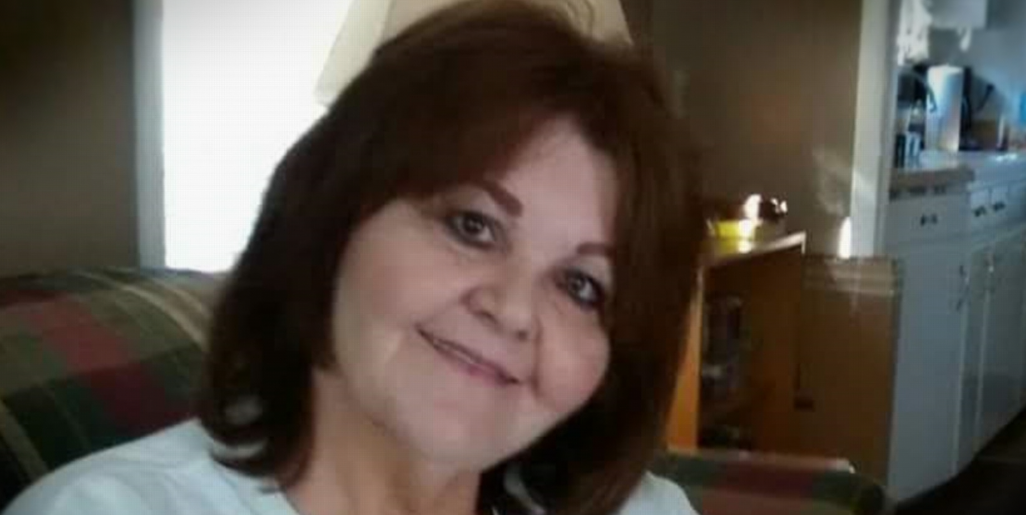Hulu’s ‘Hey Beautiful: Anatomy of a Romance Scam’ explores the emotional and financial fallout experienced by four women named Roxy, Annette, Gaby and Kathy. They were scammed by a Nigerian fraud group known as the Yahoo Boys. Using a fake online profile based on a real man named Brian Haugen, the scammers built romantic relationships with these women, ultimately deceiving them out of large sums of money. The series follows the victims as they recount their stories, reflect on how they were manipulated, and share how the ordeal impacted their lives. It’s a powerful look at vulnerability, digital deception, and the long road to healing.
Roxy Was Able to Find the Man Whose Identity Was Used to Dupe Her
Roxy Grant was living a quiet, retired life in Connecticut with her husband of 51 years, surrounded by their children and grandchildren. While they had built a happy life together, retirement brought a shift in priorities. Roxy, who craved connection and excitement, found herself emotionally restless, especially as her husband preferred a slower pace. In 2019, she began playing the mobile game Words With Friends, where she met a man named Scott Hall. What began as casual banter soon deepened into something intimate. Roxy recalled that Scott was the first to say “I love you.” He asked personal questions, expressed deep affection, and made her feel seen and cared for. It was something she admitted she hadn’t felt in a while. He told her he worked on an oil rig and, citing a complication, asked her for $1,000.

Roxy sent the money behind her husband’s back. Not long after, Scott cut off contact. When he reappeared, he claimed he wanted to return the money and more. He sent her a check for over $4,000, which turned out to be fraudulent. Her bank account was frozen, and the fallout exposed the affair to her husband, putting their marriage under serious strain. Determined to understand what had happened, Roxy reverse-searched the images Scott had sent and traced them to a real man named Brian Haugen, a makeup artist. She eventually met Brian, only to learn he had been impersonated and knew nothing of the scam. Since then, Roxy has found solace and strength in connecting with other victims and law enforcement. She’s now part of the group and is working through the emotional, financial, and personal losses she suffered.
Annette Viau Was in a Very Difficult Spot in her Life When She Met the Fraudster
Annette Viau, a longtime server living in Ontario, Canada, had built a life around her work and family. She was close to her two children, three grandchildren, and two stepchildren. But after years in what she described as a controlling marriage, she made the difficult decision to separate. What followed was a wave of hardship: within one week, she lost her home, fell out with her stepchildren after arguments, and was forced to give up her dog after he bit someone. Emotionally vulnerable and seeking connection, she turned to a dating app, where she met a man named Michael Da Silva. Charming and seemingly attentive, he told her he worked on underwater pipeline projects and was currently in Norway. Their bond grew quickly. When Michael claimed he was in a business emergency and asked for $10,000, she hesitated but eventually sent it. She was surprised when he repaid her.

But soon came another request, this time for $30,000, tied to a shipboard accident. A bank teller urged her to verify his identity, but Annette, convinced by love, proceeded. Only when all contact stopped did she grasp the truth. The man was not real. Since then, Annette has found healing by connecting with others who were similarly defrauded. She has formed a friendship with Brian Haugen, whose photos were used to scam her, and now works closely with cyber fraud experts. While she acknowledges the road to recovery is long, she’s grateful for the support system helping her rebuild.
Gaby Sent Over a Million Dollars to the Man Who Was Defrauding Her
Gaby was living in Frankfurt, Germany, when she received a connection request on LinkedIn from a man named Michael Silver. He presented himself as a successful gemstone trader, and his polished demeanor and worldly knowledge drew her in. What started as occasional messages soon turned into hours-long conversations that stretched late into the night. Gaby, who had been married for many years, found herself captivated not just by Michael’s charm but by the emotional intimacy they quickly developed. He made her feel seen, heard, and loved in a way she hadn’t experienced in decades. For the first time, she began to imagine life beyond her marriage. The two planned to meet in Berlin, and Gaby, full of hope and excitement, traveled there. However, shortly before they met, Michael claimed he had been detained at customs in Vietnam.

He said he needed €5,000 to resolve the issue. Gaby sent the money without hesitation, and, to her relief, he reimbursed her soon after. He promised they’d meet in London next, but days before, he contacted her again, saying there had been a serious accident aboard his ship and he needed €55,000 more to pay new workers. Gaby was hesitant, but by now their emotional bond was so deep that she felt responsible for him. She wired the money. The COVID-19 pandemic hit shortly after, complicating any hope of meeting in person. Still, they spoke daily. During that time, Gaby confided in him about her decision to sell her parents’ home. Michael supported her through the emotionally complex process, and when the sale was completed, he convinced her to invest the proceeds and to send €475,000 in Bitcoin.
Blinded by trust and love, she transferred the funds. Over the course of their relationship, Gaby ended up sending more than €1 million. When the contact suddenly ceased, she spiraled. Desperate to recover her losses, she was contacted by another man claiming to be able to retrieve the money, but he, too, turned out to be a scammer. Gaby’s world had unraveled. Emotionally, financially, and personally, she was left shattered. But she wasn’t alone. Through online communities and law enforcement outreach, she connected with other women like Roxy and Annette, who had been victims of the same network. Together, they formed a support system that allowed them to process their grief and begin the slow, painful journey toward healing.
Kathy Passed Away After Losing All Her Savings and Her House
Kathy was living in Alabama in 2017 when she met a man online who told her he was working on an oil rig overseas. She was in her late 60s and shared a quiet life with her sister and her niece, who lived nearby. Kathy had always been cautious and responsible with money and she managed her finances with care and had worked hard to build up her savings. That’s why her family was shocked when she admitted she had sent $20,000 to a man she had never met in person. What started as a simple online connection soon became a deep emotional bond. Over the next four years, Kathy and this man, whom she believed truly cared for her, continued their relationship through texts and calls. He asked for help again and again, claiming complications with his work, legal troubles, and health issues. By the time the contact finally stopped, Kathy had sent him over $300,000.

In 2020, tragedy struck when Kathy’s home caught fire. She lost everything. Though her insurance eventually paid out, she didn’t use the money to rebuild. Instead, still clinging to the belief in the man’s promises, she sent the funds to him as well. Her sister, heartbroken and confused, watched Kathy’s health decline rapidly after the scammer disappeared. Isolated, financially ruined, and emotionally devastated, Kathy stopped eating. She eventually passed away, with the official cause listed as malnutrition. But her family believes that she died of a broken heart. Today, Kathy’s sister and niece have become her voice. They share her story in support groups and advocacy circles, determined to honor her life and warn others.


